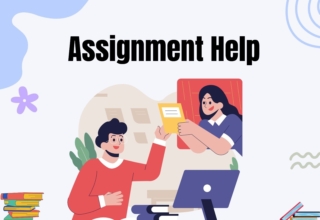
Table of Contents
Introduction
Feedback is a powerful tool for student learning. But why exactly is feedback so important? And how can teachers use it to guide students’ learning? Read on to learn more about this essential aspect of student success and how teachers can give student-centred feedback to their students in the classroom.
What is Feedback?
Feedback is the process of giving information about the results of an action. It can be positive or negative, and it’s not just limited to grades. While a teacher might give you a grade on your test, they’re also giving you feedback on how well you did.
In order for students to improve their learning, they need to receive meaningful and specific information about what worked, what didn’t work so well and what needs more focus for them to succeed next time around. They could also give verbal comments on what they think needs improvement or praise for something that went well.
Let’s understand in detail how feedback impacts student learning:
Feedback promotes student autonomy.
In the context of learning, feedback should encourage autonomy. Students need to be able to make decisions about their learning, take responsibility for it; make sense of it; reflect on it.
By providing them with timely and specific feedback in a variety of formats, you are helping students become self-directed learners. You empower them to seek out new information, evaluate it for themselves and make changes as necessary. You are not just telling students what to do; you’re helping them figure out what to do on their own.
For instance, when you provide feedback after a lesson, your students will be better able to remember what happened in the class and apply that knowledge in future situations. They will also be more likely to retain the information longer than if they did not receive any feedback at all.
Feedback helps students develop metacognition and self-regulation.
Student feedback helps students acquire metacognitive skills by encouraging them to think about their own learning process as well as their understanding of concepts or skills being taught in class.
Feedback from teachers can also help students with regulating their own behaviour (e.g., “Am I doing enough?” or “How am I doing compared with others?”). This self-regulation is an important skill that contributes greatly toward academic success! Teachers can give student centered feedback in a variety of ways. They can use whole-class discussions, small group work, or individual conferences. For example, teachers might write comments on an assignment sheet or use a rubric to provide feedback about what students need to improve on next time.
You can watch this Masterclass on feedback and student learning to understand the correlation between the two and understand this concept in detail.
Feedback is a powerful tool to alert students to what they are doing well and what might need some improvement.
Feedback is a powerful tool to alert students to what they are doing well and what might need some improvement, especially during a lesson. In addition to feedback during lessons, teachers should also provide students with feedback on their work. This can be done through checklists, rubrics and grading scales.
Student-centred feedback can help students become well-prepared for their assessments and examinations if they provide feedback throughout their journey of a lesson.
Feedback helps students understand the learning process.
Feedback helps students understand the learning process. When students receive feedback, they can see how they’re doing about their peers and what they need to do next. For example, if you give a student a high grade on an assignment, but he or she still doesn’t understand the material that well, then you should give some constructive criticism so that he or she can improve his understanding of the subject matter.
Tips for teachers for effective feedback
Here are some short and handy tips for teachers to give student centred feedback in their classrooms:
- Feedback should be specific, clear and timely
- Feedback should be given in a private environment
- Feedback should be given in a non-judgmental way
- Feedback should be given in a non-threatening way
- Feedback should be given in a positive way
These tips are useful for both teachers and students. Teachers can use them to give feedback effectively, while students can use them to improve their learning and understanding of the subject matter.
Conclusion
The key takeaway here is that feedback should be a regular part of every student’s learning experience. The more teachers are able to provide effective, targeted feedback with appropriate timing and frequency, the better students will be able to improve their performance on exams.














